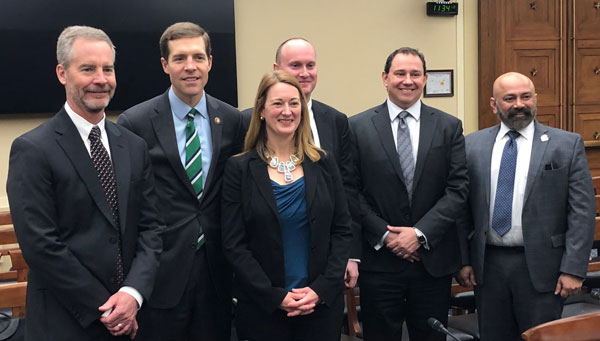
Vince Tidwell of Sandia’s water program testified last month on DOE’s research and development into the connections between energy and water before the U.S. House of Representatives Committee on Science, Space and Technology.
“This energy-water nexus is a complex system that my colleagues and I in the research community have sought to understand,” Vince said. “We in turn use this knowledge to develop advanced technologies and tools to support water and energy policymakers and planners. While our focus today is on the nexus of energy and water, we must not lose sight that the connections go far beyond. Energy and water are tightly coupled to land, food and agriculture.”
Sandia’s energy-water nexus research program seeks to develop science-based engineering solutions to safeguard resilient and sustainable energy-water systems, in the interest of national and global security.
Vince focused on three points:
- Challenges and opportunities related to the energy-water nexus are expressed differently in different regions.
- Integrated planning improves coordination between water, energy and environmental managers jointly addressing issues of resource sustainability, waste management and supply-chain security.
- By harnessing the research and development capabilities of the national labs, academia, private industry and federal agencies, the U.S. can develop advanced water treatment technologies that make new sources of water cost competitive, thereby reducing reliance on fresh water.
Research into the energy-water nexus is more than simply avoiding unintended consequences of a complexly coupled system, Vince told the subcommittee.
“Rather, we have the opportunity to completely reimagine our energy and water future,” he said. “We are striving for an energy system that is not dependent on fresh water in our water-limited regions. Likewise, we envision a future where non-traditional water sources like brackish water, seawater, produced water and wastewater can be treated at cost-competitive levels. Such changes will have impact well beyond the energy and water sectors, influencing our economy and national security.”
During the hearing, both Conor Lamb, D-PA, who chairs the committee, and the ranking member, Randy Weber, R-TX, referred to Sandia’s leadership in studying the energy-water nexus and commended Vince and his colleagues for helping stakeholders understand the trade-offs of policy and planning decisions.